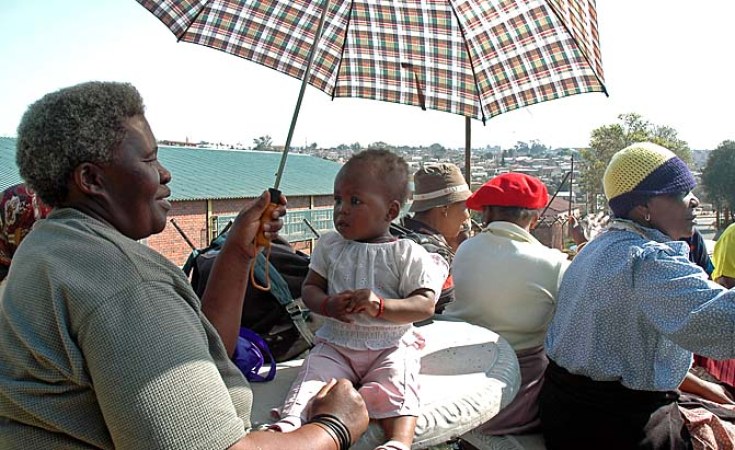Cape Town — Scientists have proclaimed a breakthrough in research into the use of an antiretroviral microbicide which they say could prevent more than 500,000 new HIV infections in South Africa alone over the next decade.
The scientists, from the University of KwaZulu-Natal (UKZN), Durban, and Columbia University, New York, say that an experiment with a trial group of South African women shows that those who used a vaginal gel containing tenofovir, an antiretroviral drug, were 39 percent less likely to become infected with HIV during sex than those who did not use it.
They say the gel was also 51 percent effective in preventing genital herpes infections in the women participating in the trial. The scientists noted that women with genital herpes run a high risk of HIV infection.
Making their announcement jointly in Durban and at the International AIDS Conference in Vienna, they said it was "an important scientific breakthrough in the fight against HIV and genital herpes."
If the research results are confirmed in further studies, the gel could revolutionize the lives of women whose partners fail to practise safe sex.
“Tenofovir gel could fill an important HIV prevention gap by empowering women who are unable to successfully negotiate mutual faithfulness or condom use with their male partners,” said Dr. Quarraisha Abdool Karim, Associate Professor of Epidemiology at Columbia University.
The trial with the gel was carried out by the Centre for the AIDS Programme of Research in South Africa (CAPRISA), a joint UKZN-Columbia University research institute based at the UKZN's medical school.
The 889 women from KwaZulu-Natal who took part were told to use the gel up to 12 hours before, and soon after, having sex. They used it over a period of between 12 and 30 months.
Of the 889, 98 became HIV positive over the course of the experiment. Of those who used the gel, 38 became HIV positive, while of those who used a placebo, 60 became HIV positive.
"Women who used the gel in more than 80 percent of their sex acts had a 54 percent reduction in HIV infections," the researchers said, "whereas those who used the gel in less than half of their sex acts had a 28 percent reduction in HIV infections."
Of 434 women who tested negative for herpes, 29 who used the gel became infected, as against 58 who used a placebo.
"The reduced rates of HIV and herpes infections among the women who used the tenofovir gel are statistically significant," the researchers added.
Dr. Salim S. Abdool Karim, director of CAPRISA and Pro Vice-Chancellor (Research) of the University of KwaZulu-Natal, South Africa, said the trial results were "a significant first step toward establishing the effectiveness of antiretroviral drugs for HIV and genital herpes prevention; confirmatory studies are now urgently needed.”
The scientists said all participants in the trials were given HIV risk-reduction counselling, condoms and treatment for sexually transmitted infections. They added: "The trial team observed no substantive safety concerns from use of the gel. Further, no increase in risky behavior was observed in the women...
"All volunteers to the study who tested HIV positive were provided care including ARV treatment at the CAPRISA clinics and women who became infected during the study were enrolled into CAPRISA studies and/or the CAPRISA AIDS treatment program at their respective sites for ongoing care and support."


